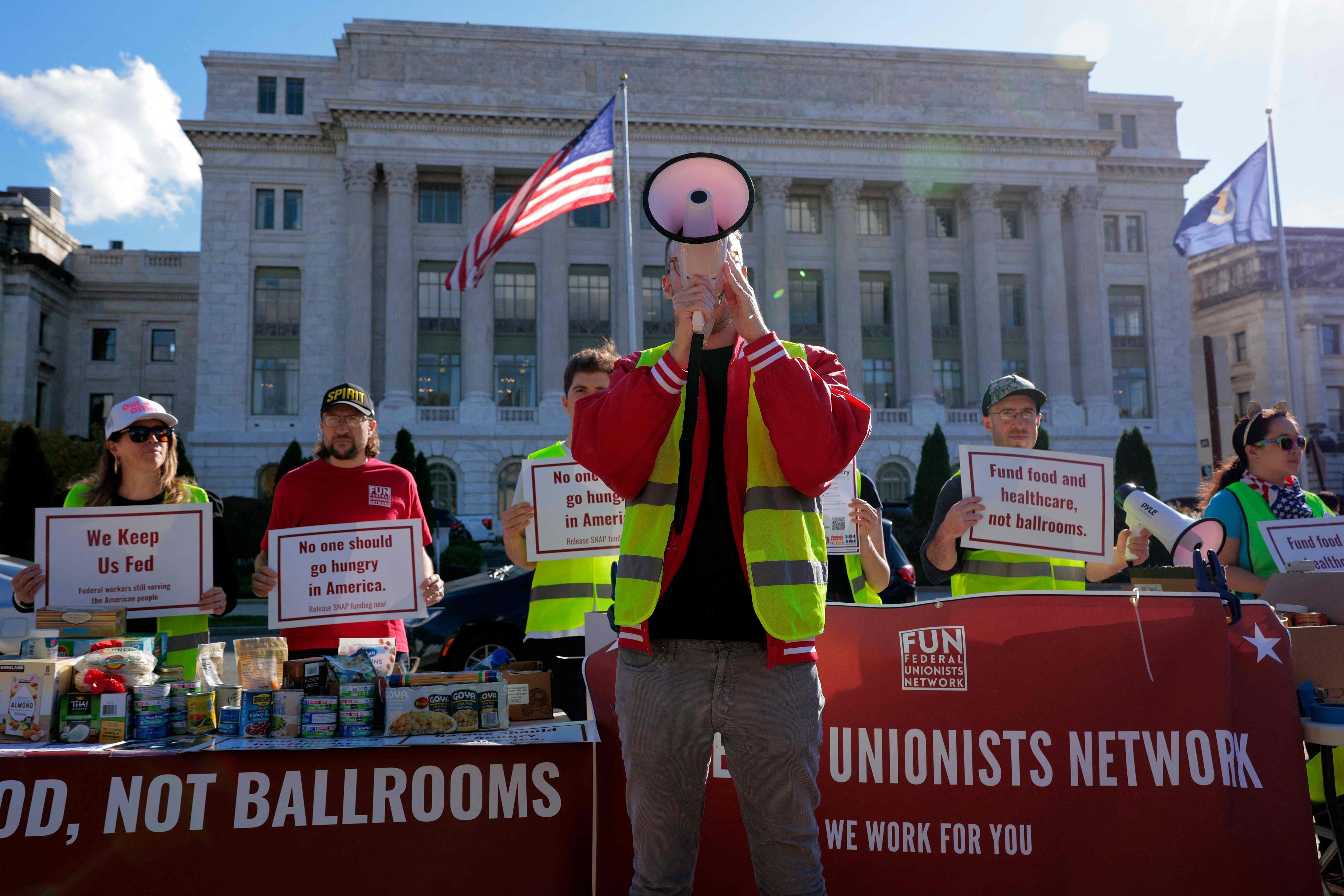Copyright scmp

A federal judge in Boston signalled she may rule that the Trump administration is likely to have violated US law in suspending food-aid benefits to millions of low-income US households during the government shutdown, and she criticised the “political game” being played with American lives. At a court hearing on Thursday, US District Judge Indira Talwani heard arguments in a lawsuit brought by more than two dozen Democratic-led states seeking to keep federal dollars flowing to the Supplemental Nutrition Assistance Programme, or Snap. The judge said she would issue a ruling later in the day. The US Department of Agriculture previously announced it would halt the programme starting in November until Congress approves a new spending deal. Earlier this month, officials had directed states to stop taking steps to administer the programme ahead of November 1. Talwani bristled at claims by the federal government that it could not tap available emergency funds and that even providing partial payments would be “devastating” and too difficult for states to carry out. The judge said Congress was trying “to protect the American people,” at a Thursday hearing weighing a request by a coalition of states to force the government to use the emergency funds. “What Congress was trying to do is, if you don’t have enough money, we’ll tighten our belt,” the judge said, not jeopardise people’s well-being because of a “political game”. The Agriculture Department, which manages the Snap programme, sees those funds as legally unavailable during the shutdown. The US Justice Department lawyer representing the agency went further in court, telling the judge that the agency would probably not access the emergency reserves even if it were legally able to do so. “The agency’s conclusion would likely be that the partial reimbursement would be so disastrous,” said Jason Altabet of DOJ’s civil division, raising concerns that decades-old computer systems could freeze if recalculations are ordered. “They’d conclude the partial reimbursement would be so devastating as to not exercise discretion to do so.” The court pressed the parties on whether it has the power to issue a nationwide order, noting the Supreme Court’s recent limitations on nationwide injunctions. As such, the lawsuit only sought Snap funds for people in the 25 states and the District of Columbia that filed the legal action. Talwani said she “can’t consider this in terms of only half the nation”. Citing federal law and regulations that appear to anticipate reductions of benefits in some situations, Talwani asked why the government has taken the position that a partial payment with limited emergency funds is “simply too complicated”. A suspension of benefits will exacerbate food insecurity across the country, on top of the strain already facing the millions of federal workers who have not received pay cheques since the shutdown began on October 1. More than 42 million people in 22 million households nationwide receive Snap benefits, according to government data. The federal government sends Snap funds to states to administer to eligible residents, who receive the money each month via a benefits card they can use to pay for groceries, similar to a bank debit card. The lawsuit centres on Snap contingency funds that Congress approved long before the shutdown started on October 1. According to government court filings, there is US$5.25 billion in that reserve fund. Congress also designated money for child nutrition programme,es from the proceeds of import tariffs that the states say also could be used. The administration recently transferred US$300 million from that fund to keep the Women, Infants, and Children (WIC) programme running during the shutdown. The Agriculture Department has maintained that it can only use the contingency money to “supplement” existing funds that Congress approved to pay for Snap benefits in a specific financial year. The reserve money is not available now that there are no longer funds left from the previous financial year, the government argues. The Democratic officials contend the government must exhaust available funding sources before halting payments for a programme that Congress deemed mandatory. They said the government’s stance conflicts with guidance that the department published before the shutdown stating that the reserve funds would be available to keep the programme running. Separate from the Boston case, a coalition of non-profit organisations and city officials from across the country filed a new lawsuit in federal court on Thursday contesting the Snap suspension in Providence, Rhode Island. They also asked a judge to immediately enter a temporary restraining order that restores the benefits for November. Although Republicans control both chambers of Congress, they need support from several Democrats to clear procedural hurdles in the Senate and pass a new spending bill. Most Senate Democrats have been united in pressing for a budget deal to include a renewal of expiring health insurance subsidies.



